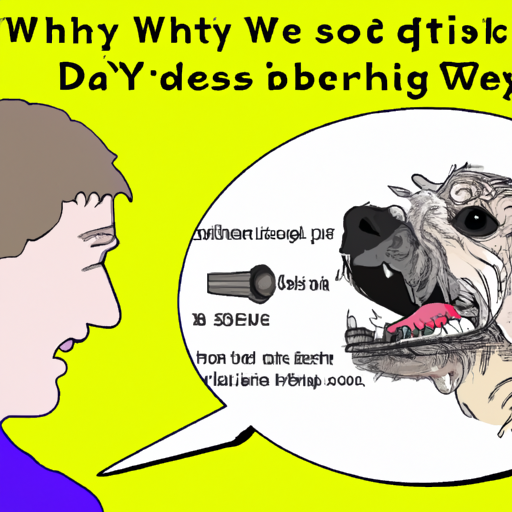As a caregiver, you may have noticed your dog’s jaw shaking or chattering and wondered what could be causing this behavior. In this article, we will delve into the potential reasons behind this, providing you with all the information you need to understand and help your furry friend.
1. Understanding Your Dog’s Jaw Shaking
Dogs may exhibit jaw shaking for a variety of reasons, from simple excitement to serious health issues. It’s vital to observe when and how often your dog’s jaw shakes to uncover the probable cause.
Common Situations When Jaw Shaking Occurs:
- After fetching a ball or active play
- When excited or anxious
- During sleep
- After eating or drinking
2. Possible Medical Reasons for Your Dog’s Jaw Shaking
Sometimes, your dog’s jaw shaking could be a sign of an underlying medical condition. Here are some possibilities:
-
Dental Problems: Just like humans, dogs can suffer from dental issues like gum disease, cavities, and tooth loss. Jaw shaking could be a sign of pain or discomfort related to dental problems.
-
Neurological Disorders: Conditions such as distemper or canine epilepsy can cause jaw shaking in dogs. These conditions typically come with other symptoms like loss of coordination, changes in behavior, or even seizures.
-
Cold Weather: Dogs can shiver and shake when they’re cold, and this can include their jaws. If it’s cold outside and your dog’s jaw is shaking, they might just be cold.
| Medical Reason | Other Symptoms | Recommended Action |
|---|---|---|
| Dental Problems | Bad breath, difficulty eating, drooling | Visit a vet for dental checkup |
| Neurological Disorders | Loss of coordination, seizures | Consult a vet immediately |
| Cold Weather | Shivering, seeking warmth | Provide warmth, limit time outside |
3. Behavioral Reasons for Your Dog’s Jaw Shaking
Jaw shaking can also be a behavioral trait in dogs. Your dog might shake their jaw when they’re excited, anxious, or after intense play. It can also occur when they’re trying to get your attention or if they’re feeling particularly territorial.
4. When to Worry About Your Dog’s Jaw Shaking
While occasional jaw shaking might not be a cause for concern, if your dog’s jaw shakes frequently or is accompanied by other worrying symptoms such as loss of appetite, lethargy, or changes in behavior, it’s essential to consult with a vet.
5. How to Help Your Dog
Depending on the cause of your dog’s jaw shaking, there are several ways you may be able to help:
- Maintain good dental hygiene for your dog, including regular brushing and dental check-ups.
- Ensure your dog is warm enough in cold weather.
- Consult a vet if you notice any other worrying symptoms.
Frequently Asked Questions (FAQs)
Q: Can jaw shaking be a sign of a serious problem?
A: Yes, in some cases jaw shaking can be a sign of serious medical conditions like neurological disorders or severe dental problems. If you’re worried about your dog’s jaw shaking, it’s best to consult a vet.
Q: My dog’s jaw shakes when they’re excited. Is this normal?
A: Yes, some dogs shake or chatter their jaws when they’re excited, anxious, or after intense play. However, if the shaking is frequent or seems to cause distress, it’s a good idea to consult with a vet.
Q: How can I help my dog if their jaw is shaking due to the cold?
A: Try to keep your dog warm by providing a warm bed and blankets, and limit their time outside in cold weather. If your dog’s jaw continues to shake despite being warm, consult a vet to rule out any medical issues.
Understanding why your dog’s jaw is shaking is the first step in providing them with the care they need. Whether it’s a simple behavioral trait or a sign of an underlying medical issue, being aware of your dog’s behaviors will help you ensure they stay healthy and happy.



